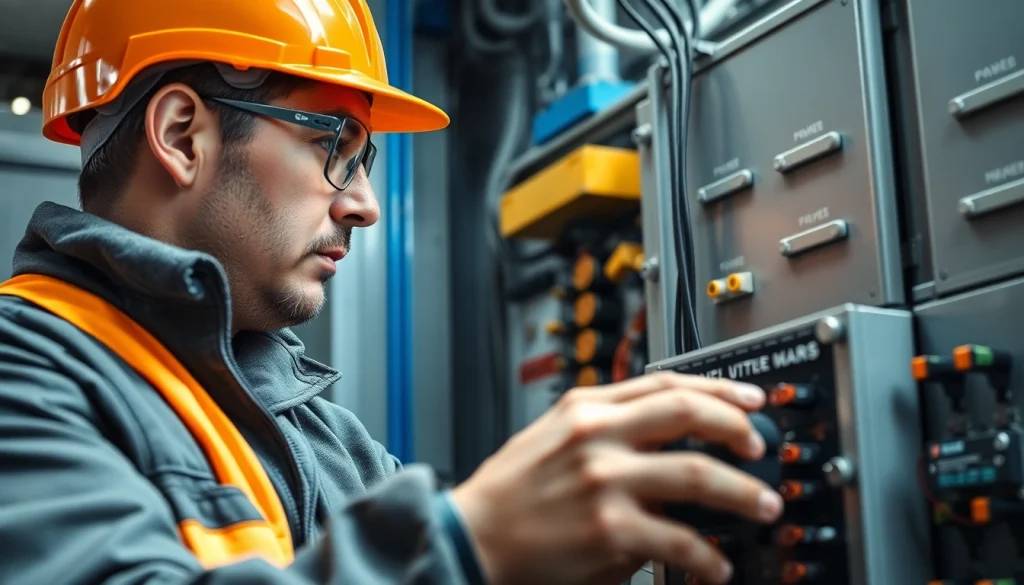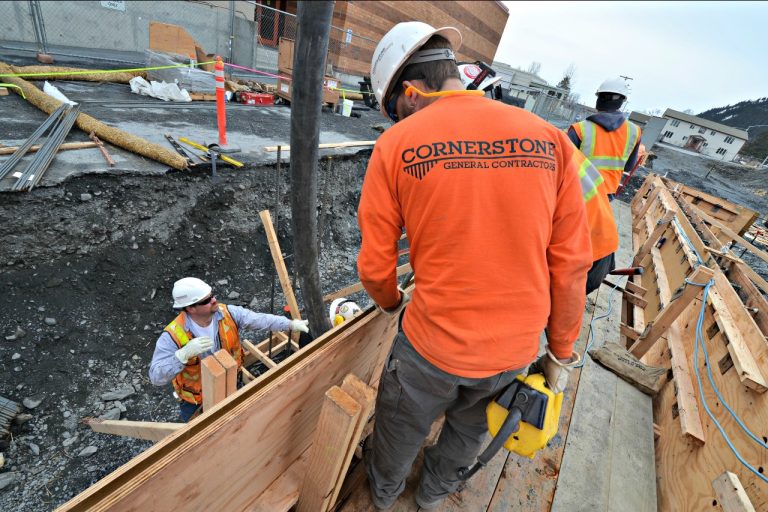
Understanding the Role of an Electrician
The role of an Electrician goes beyond just installing and repairing electrical systems; it encompasses a wide array of responsibilities that ensure our homes, businesses, and cities function smoothly and safely. Electricians are highly trained professionals who specialize in electric wiring, installation, maintenance, and troubleshooting of various electrical systems.
What an Electrician Does
Electricians are responsible for the installation and maintenance of electrical systems in a variety of settings. This includes residential areas, commercial establishments, and industrial plants. Their duties often involve:
- Installing wiring, outlets, and fixtures for electrical systems.
- Testing electrical systems and troubleshooting faults to ensure safety and compliance with regulations.
- Maintaining existing electrical systems to improve reliability and efficiency.
- Reading blueprints and technical diagrams to ensure accurate installations.
- Updating and retrofitting electrical systems to adapt to new technologies.
Importance of Licensed Electricians
One essential aspect of hiring an Electrician is ensuring that they are licensed. Licensed electricians have undergone extensive training and certification, making them more qualified to handle electrical systems safely. They are knowledgeable about electrical codes and safety regulations, which helps prevent accidents such as electrical fires and shock hazards. Additionally, license-backed work often comes with warranty protection, providing peace of mind to homeowners and businesses.
Common Myths About Electricians
There are several misconceptions about electricians which can affect the hiring choices of homeowners and businesses:
- Myth 1: Electricians only work in residential settings.
In reality, electricians work across diverse environments, including commercial and industrial settings. - Myth 2: All electricians have the same skills.
Skills vary widely; some specialize in residential work, while others may focus on commercial or industrial systems. - Myth 3: Electrical work is easy and does not require a professional.
In fact, electrical work is complex and requires extensive training to ensure safety and compliance with legal standards.
Key Skills Required for Electricians
To be successful in their roles, electricians must master a blend of technical skills, problem-solving techniques, and interpersonal abilities. Below are essential skills for every qualified electrician:
Technical Knowledge and Safety Practices
Electricians must possess a solid understanding of electrical theory, which involves knowing how current, voltage, and resistance interact. Safety practices are critical, as electricians frequently work in potentially hazardous environments. Familiarity with tools, equipment, and safety standards enables them to perform their duties effectively and minimize risks.
Problem-Solving Abilities
Every day, electricians face unforeseen challenges. Their ability to diagnose problems quickly and accurately is crucial in ensuring minimal downtime and disruption, whether in a residential or industrial context. Successful electricians employ analytical thinking and a methodical approach to troubleshooting electrical issues.
Communication and Customer Service Skills
Effective communication is vital for electricians. They must convey technical information clearly to clients and collaborate with other professionals like engineers and contractors. Strong customer service skills enhance client relationships, leading to repeat business and positive referrals.
Types of Electrician Services Offered
Electricians offer a variety of services that cater to specific client needs across different sectors. Below are the primary types of services:
Residential Electrical Services
Residential electricians typically specialize in home electrical systems, including:
- Wiring new homes and renovations.
- Installing lighting fixtures, outlets, and fans.
- Upgrading electrical panels and circuit breakers for improved performance.
- Providing electrical inspections and maintenance to ensure safety.
Commercial Electrical Services
Electricians in commercial settings focus on larger-scale installations and maintenance. Their services include:
- Designing and installing electrical systems for new commercial buildings.
- Managing complex lighting systems and security installations.
- Ensuring compliance with local codes and regulations specific to businesses.
- Providing ongoing maintenance and upgrading existing systems for efficiency.
Industrial Electrical Solutions
Industrial electricians work with complex machinery and large-scale electrical systems, providing:
- Maintenance and troubleshooting of manufacturing equipment and systems.
- Installation of robust electrical systems that can withstand heavy use.
- Expertise in automation and control systems for increased efficiency.
- Implementing safety measures and compliance audits to mitigate risk.
How to Choose the Right Electrician
Selecting the right electrician is crucial for the success of your electrical projects. Here are a few guidelines:
Evaluating Credentials and Experience
Before hiring an electrician, always check their credentials. This includes verifying their licenses, certifications, and insurance. Assess their experience by asking for references or examples of past projects. A seasoned electrician familiar with the specific requirements of your project type is ideal.
Asking the Right Questions
When interviewing potential electricians, asking the right questions can provide valuable insights into their expertise. Consider inquiring about:
- Their previous experience with similar projects.
- Estimated timelines for completion of your project.
- Emergency repair procedures and response times.
- Guarantees or warranties on their work.
Understanding Estimates and Quotes
Gather detailed estimates from multiple electricians to make a sound decision. A transparent quote should include labor costs, materials, and any other potential charges. Be wary of prices that appear unusually low, as they may compromise quality.
The Future of the Electrician Profession
The electrical industry continually evolves due to emerging technologies and changing regulations. Electricians must adapt to these changes to stay relevant and competitive.
Emerging Technologies and Trends
One significant trend is the growing emphasis on energy efficiency and renewable energy solutions. Electricians are increasingly tasked with installing solar panels, energy-efficient lighting, and smart home technology. Understanding these technologies ensures electricians can meet the needs of modern consumers effectively.
Training and Certification Programs
The path to becoming an electrician is paved with various training and apprenticeship programs. Ongoing education is paramount, as new codes and technologies emerge. Electricians must pursue continuous professional development through workshops and courses to maintain their edge in the industry.
Job Outlook and Opportunities
The job outlook for electricians remains strong, driven by the demand for new construction, renovations, and technology upgrades. Many electricians can expand their services into more specialized areas, further enhancing job security and career growth.






